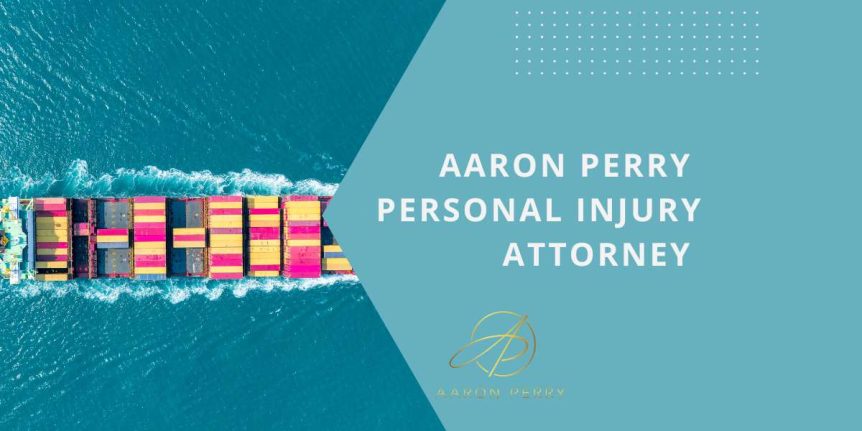
Six Critical Steps to Take Immediately After a Maritime Accident in Galveston
Six Critical Steps to Take Immediately After a Maritime Accident in Galveston
Being injured on the job—whether on a deep-water vessel, a jack-up rig, a fishing boat, or a towboat operating out of the Port of Galveston—can be a terrifying and disorienting experience. Your employer and their insurance company immediately begin building their defense.
Your actions in the first hours and days following a maritime accident are crucial to protecting your health and preserving your legal right to compensation under the Jones Act or the Doctrine of Unseaworthiness.
As a dedicated maritime attorney Galveston, we urge all seamen to follow these six essential steps immediately after an injury.
Step 1: Seek Immediate Medical Attention and Report the Injury
Your health is the absolute priority. Do not “tough it out.”
- Request Medical Care: Report your injury to your captain or supervisor immediately and demand to be transported for medical evaluation. Under maritime law, your employer must provide prompt and adequate medical care.
- Be Honest and Specific: When seeing a doctor, be clear that your injuries are a result of a work-related accident on the vessel. Describe exactly how the accident happened and all the symptoms you are experiencing, even if they seem minor. This links your injury directly to the accident in the official medical record.
- Report to Your Employer: Ensure your injury is reported to your supervisor or captain right away. Request that an official incident report be filed and that the accident is entered into the ship’s log. DO NOT assume a co-worker has reported it for you.
Step 2: Document Everything You Can (Safely)
Evidence on a vessel is often cleaned up, repaired, or sailed away within hours. You must act quickly to secure the facts while they are fresh.
- Take Photos/Videos: If you are physically able and it is safe to do so, use your phone to capture the accident scene. Focus on:
- The unseaworthy condition (e.g., broken railing, frayed line, slippery surface, malfunctioning equipment).
- The area where you were working and the equipment involved.
- Your visible injuries.
- Get Witness Information: Write down the full names and contact information (personal phone numbers and emails) of any crew members or co-workers who saw the accident or were nearby. Their testimony is invaluable.
- Keep a Detailed Journal: As soon as you can, write down a detailed, private account of the accident, including the date, time, weather, what you were doing, exactly how the injury occurred, and the names of everyone present. Also, journal your daily pain levels and how your injuries affect your life.
Step 3: Do NOT Sign Any Documents Without a Lawyer
The vessel owner or their insurance company may present documents to you very quickly. Be extremely cautious.
- Refuse Recorded Statements: The company’s insurance adjuster may ask you for a “quick, informal recorded statement.” Politely decline. They are trained to trick you into saying something that minimizes your injuries or admits fault, which will be used against you later.
- Never Sign Waivers: Never sign any document that waives your rights, releases the company from liability, or agrees to a settlement, no matter how much they offer.
- Read Incident Reports Carefully: If you must sign the company’s internal accident report, read it carefully first. If it inaccurately describes the events or your condition, ask for a correction.
Step 4: Keep All Your Medical and Financial Records
To recover full compensation, you must be able to prove every dollar you spent and every day you lost from work.
- Save Everything: Create a dedicated folder or digital file for all records. This includes:
- All hospital, doctor, physical therapy, and prescription bills.
- All medical records and diagnostic test results (X-rays, MRIs).
- Receipts for travel to and from medical appointments.
- Pay stubs and other records showing your pre-injury income.
Step 5: Assert Your Right to Choose Your Doctor
Under maritime law (specifically your right to Maintenance and Cure), your employer is obligated to pay for your medical treatment until you reach Maximum Medical Improvement (MMI). However, your employer or their insurer may try to push you toward a company-approved doctor.
- The Power is Yours: As an injured seaman, you have the right to choose your own physician for treatment.
- Why This Matters: Company doctors are often focused on minimizing your treatment and getting you back to work, while your own doctor is focused solely on your recovery. If your employer tries to control your medical care, contact a Galveston maritime lawyer immediately.
Step 6: Contact an Experienced Galveston Maritime Attorney Immediately
Maritime law—encompassing the Jones Act and the Doctrine of Unseaworthiness—is complex and operates in federal court. It is drastically different from standard Texas Workers’ Compensation. Your employer and their insurance carrier have lawyers on retainer from the moment your accident occurs. You should, too.
- The Time Limit is Strict: Maritime personal injury claims generally have a strict three-year Statute of Limitations. If you miss that deadline, you lose your right to recover forever.
- Level the Playing Field: Your attorney is your shield against the powerful resources of the shipping company. We will immediately investigate the unseaworthy condition, handle all communication with the company and insurance adjusters, and ensure your rights to Maintenance and Cure are protected.
Do not try to navigate the complex waters of maritime law alone.
Book a consultation with Aaron Perry, Galveston’s Trusted Maritime Attorney.
